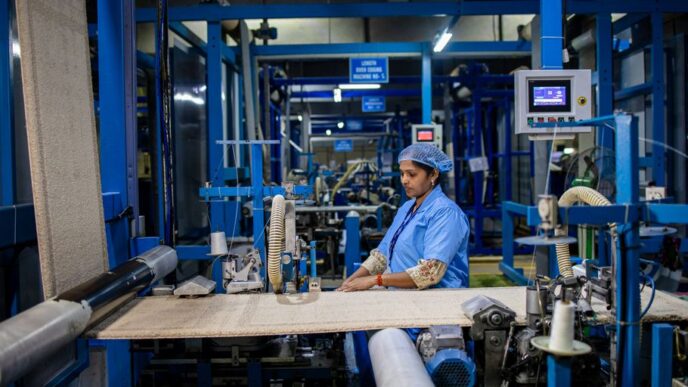When selecting the right aged care facility for your loved ones, you must consider various factors to guarantee their well-being and comfort. From determining their care needs to evaluating the facility’s environment and services, each aspect plays a critical role in their quality of life. However, one often overlooked yet essential aspect is the emotional facet of adjusting to a new living arrangement. This emotional component can greatly impact their adaptation and happiness in their new home.
Assessing Care Needs
To evaluate your loved one’s care needs effectively, schedule an Aged Care (ACAT) assessment to determine the level of care required. This assessment is vital in understanding the specific level of care your loved one needs, whether it be independent living, assisted living, or nursing care. By undergoing this evaluation, you can guarantee that your loved one receives the appropriate assistance tailored to their medical, personal, and social requirements.
During the evaluation, consider your loved one’s health condition and the support they may need. Look for facilities that provide on-site medical support, nursing care, and emergency services to address any unforeseen circumstances effectively. Matching your loved one’s needs with the right care facility like St Andrew’s aged care is essential to ensure their safety and well-being.
Evaluate the facility’s capacity to meet your loved one’s care requirements thoroughly. Make sure that the facility can assist with daily activities, manage medications appropriately, and offer any specialized care services if necessary. By thoroughly analyzing these factors, you can make an informed decision that prioritizes your loved one’s health and security in a caring environment. Remember, your loved one’s safety and comfort should be at the forefront of your decision-making process when selecting an aged care facility.
Evaluating Facility Environment
When evaluating an aged care facility, begin by thoroughly examining the cleanliness, decor, and outdoor spaces to guarantee a welcoming and comfortable environment for your loved one. A vital and well-maintained facility is essential for your loved one’s health and safety. Look for indicators of socialization, contentment, and liveliness to gauge the atmosphere’s positivity. An environment that fosters social interactions and activities can contribute to your loved one’s overall well-being.
Evaluate the quality of care culture reflected in the facility’s atmosphere. A positive culture within the facility can enhance the residents’ sense of belonging and happiness. Check for a well-defined positive culture that contributes to the overall positive environment. This positive atmosphere is important for your loved one’s mental and emotional health.
Consider how the facility’s atmosphere aligns with the expected quality of care for your loved ones. The environment should feel welcoming and supportive, promoting a sense of security and comfort. By assessing these factors, you can make sure that your loved one will be in a facility that prioritizes their well-being and happiness. Make sure the facility’s environment meets your standards and provides the right atmosphere for your loved one’s care.
Considering Services and Amenities
Assess the range of medical services and allied health support available in the facility to guarantee holistic care for your loved one. Look into the availability of services like physiotherapy, occupational therapy, and mental health support to ensure thorough care tailored to your loved one’s needs. Consider the quality and diversity of dining options, making sure that special dietary requirements can be accommodated to maintain their health and well-being.
Evaluate the variety of social activities, outings, and programs offered by the facility. Engaging in these activities can promote social interaction, mental stimulation, and a sense of community, which are essential for your loved one’s overall happiness and well-being. Review the availability of on-site amenities such as cafes, gardens, and recreational facilities. These amenities can enhance your loved one’s quality of life and provide opportunities for relaxation and enjoyment.
Lastly, consider the accessibility of additional services within the facility. Having easy access to services like physiotherapy, occupational therapy, and mental health support can address any specific needs your loved one may have promptly. By thoroughly examining the services and amenities offered by the aged care facility, you can make sure that your loved one receives the all-encompassing care and support they deserve.
Examining Dining and Nutrition
Considering the importance of nutritious meals tailored to seniors’ needs, the examination of dining and nutrition in an aged care facility is crucial for guaranteeing residents’ health and well-being. In these facilities, chefs specializing in elderly nutrition are essential in crafting meals that not only meet dietary requirements but also cater to the specific nutritional needs of seniors. The quality, variety, and presentation of meals offered greatly impact residents’ satisfaction and overall dining experience.
When evaluating an aged care facility, pay close attention to the meal options available and how well they adhere to residents’ dietary needs. A diverse menu that caters to different tastes and dietary restrictions ensures that residents receive proper nutrition while enjoying their meals. Additionally, the presence of on-site cafes providing treats and snacks can enhance residents’ dining experiences and offer them additional choices throughout the day.
Reviewing Location and Accessibility
To make an informed decision about an aged care facility, prioritize examining the location and accessibility factors. Begin by considering the proximity of the facility to your family members. Choosing a facility close to loved ones facilitates easy visitation and allows for active involvement in care decisions, providing both emotional support and practical assistance when needed.
Evaluate the accessibility of the facility by looking into the available transportation options for residents and visitors. Adequate transportation choices guarantee that your loved one can easily travel to medical appointments or outings with family members.
Additionally, check the availability of nearby amenities such as hospitals, pharmacies, and grocery stores. Having these essential services close by ensures convenience and swift access in case of emergencies.
Assess the safety and ease of access within the facility itself, especially if your loved one has mobility issues or specific care requirements. Confirm that the location aligns with your loved one’s preferences, whether they prefer a quiet residential area or a more bustling urban setting.
Exploring Recreational Activities
Exploring the range of recreational activities available in aged care facilities can greatly enhance the quality of life for residents. These activities are designed to keep residents engaged and stimulated, promoting not just physical well-being but also mental and emotional health. Music therapy, art classes, and group excursions are commonly offered to cater to diverse interests.
Important events play a crucial role in fostering a sense of community among residents. Games nights, movie screenings, and family days are organized to encourage interaction and create a supportive environment. These events not only provide entertainment but also help residents build relationships and combat feelings of loneliness.
Having a regular entertainment schedule with varied activities contributes to a positive atmosphere within the aged care facility. Residents benefit from participating in activities that align with their interests and abilities, leading to a sense of fulfillment and enjoyment. Engaging in these tailored activities can also improve mood, cognitive function, and overall well-being, enhancing the overall quality of life for elderly residents in care facilities. By prioritizing recreational activities, aged care facilities create a vibrant and engaging environment that promotes the well-being of their residents.
Ensuring Safety and Accreditation
- Prioritize verifying the government accreditation of the aged care facility to guarantee it meets national quality standards. This accreditation ensures that the facility has been evaluated and meets specific criteria set by the government to provide high-quality care for residents. It serves as an important indicator of safety and quality in aged care.
- Check for safety features within the facility to ensure the well-being of your loved ones. Look for emergency systems, handrails in hallways and bathrooms, and accessibility for mobility aids like wheelchairs and walkers. These features are essential for preventing accidents and ensuring residents can move around safely.
- Look for certifications and accreditations from reputable organizations that signify excellence in care. These additional certifications demonstrate a commitment to maintaining high standards and can provide further assurance of quality care for your loved ones.
- Verify that the aged care facility complies with safety regulations and protocols to safeguard resident well-being. Ensuring adherence to safety standards is crucial for creating a secure environment where residents can thrive.
- Prioritize safety measures such as staff training, security protocols, and emergency response procedures. Well-trained staff and robust safety protocols contribute to a safe and secure environment for residents, giving you peace of mind about the care your loved ones receive.
Understanding Costs and Financial Considerations
Understanding the financial aspects of aged care is essential for making informed decisions about the costs involved in selecting a facility. When considering an aged care facility for your loved ones, it’s vital to comprehend the different costs you may encounter. These costs typically include care fees, accommodation charges, and potential additional service fees. To help offset some of these expenses, it’s advisable to investigate your eligibility for government funding that can assist with the costs of aged care services.
Evaluate the financial implications of various care options available, such as home care, retirement communities, and residential aged care facilities. Research and compare costs across different aged care facilities to make sure that you make a decision that aligns with your budget and financial considerations. Prioritize seeking clarity on the financial aspects of aged care, including payment structures, fee schedules, and any potential subsidies or financial assistance that may be available to you.
Conclusion
In summary, selecting the right aged care facility for your loved ones is an important decision that necessitates careful consideration of their specific needs and preferences.
By taking the time to assess their care requirements, evaluate facility amenities, and consider financial factors, you can guarantee they receive the best possible care.
Remember, finding the perfect fit is like finding a needle in a haystack – but with patience and diligence, you can make the right choice for your loved ones.













